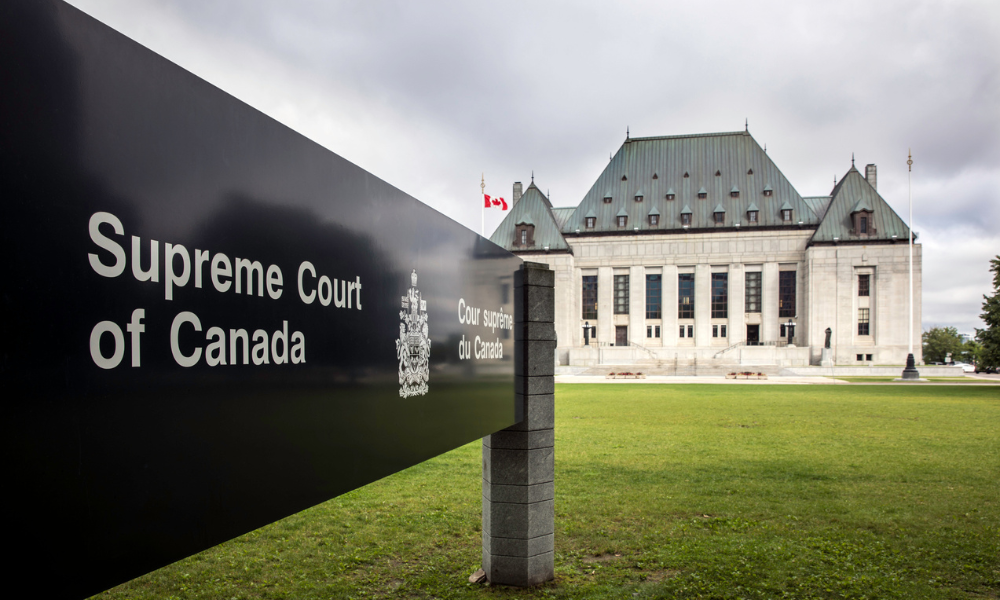Preview to the Supreme Court of Canada's winter session, part two

In the Supreme Court of Canada’s winter session, the court will hear cases dealing with French-language rights, and how amicus curiae can bolster trial fairness for self-represented litigants.
The SCC will hear 17 appeals in the winter session, which begins Jan. 9. See part one of Canadian Lawyer’s preview here.
On Feb. 9, the SCC will hear a case concerning French language rights: Commission scolaire francophone des Territoires du Nord-Ouest, A.B., et al. v. Minister of Education, Culture and Employment of the Northwest Territories, et al.,
The Minister of Education, Culture and Employment of the Northwest Territories had denied six French-language school admission applications, according to the criteria set out in the Ministerial Directive – Enrolment of Students in French First Language Education Programs. The Minister denied the parents’ request that she exercise her residual discretion to allow their children to attend because the directive’s criteria did not apply in their circumstances.
The territory’s Supreme Court set aside the Minister’s decision, finding she had not balanced the parents’ protections under s. 23 of the Charter, which requires provincial and territorial governments to provide education to Canadians in the official language of their choice. The Court of Appeal then restored the Minister’s decisions, finding that the chambers judge had operated on the mistaken assumption that the case involved constitutional rights, but that the families involved did not qualify under s. 23. The appellate court also ruled the families had no other legal or statutory right to attend French-language schools.
The SCC will determine whether the Minister should have exercised her discretion to allow the children to attend the schools, despite not being rights holders under s. 23, nor falling under any category set out in the ministerial directives.
The first appeal heard in March will be the Alberta case, Emanuel Kahsai v. His Majesty the King. It involves a man who was convicted of two counts of first-degree murder but argues that the jury selection for his trial was flawed.
After Emanuel Kahsai refused to retain counsel, the trial judge appointed an amicus curiae for the jury selection process. Because of his disruptive behaviour, Kahsai was required to watch the process via videoconference. The judge instructed him to communicate to the amicus curiae with thumbs-up and thumbs-down gestures to indicated whether he wanted to use a peremptory challenge to disqualify a potential juror. During the process, Kahsai did not signal for any challenges, but the amicus curiae challenged eight potential jurors based on her own professional judgment. Some potential jurors asked to be excused, and the judge held these discussions off the record and out of earshot of the Crown prosecutors and the amicus curiae.
Kahsai appealed, alleging the jury reached an unreasonable verdict on one of the murder counts, and that the jury selection process was flawed. A majority of the Court of Appeal dismissed Kahsai’s appeal, but one judge would have allowed it and ordered a new trial on both first-degree murder counts.
In Kahsai, the SCC may elaborate on its ruling in Ontario v. Criminal Lawyers’ Association of Ontario, and “provide guidance on how amici curiae can promote trial fairness without becoming de facto defence counsel or unnecessarily compromising the accused's autonomy,” says Daniel Song, counsel for Kahsai.
“Criminal trials have become increasingly complex for lawyers and judges, let alone the self-represented accused,” he says. “A lay person may, through their own volition or ineptitude, defend themselves so poorly that they author their own convictions. This ruling could have a considerable impact on the most marginalized people in criminal courts, including those who endure persistent mental health challenges.”










